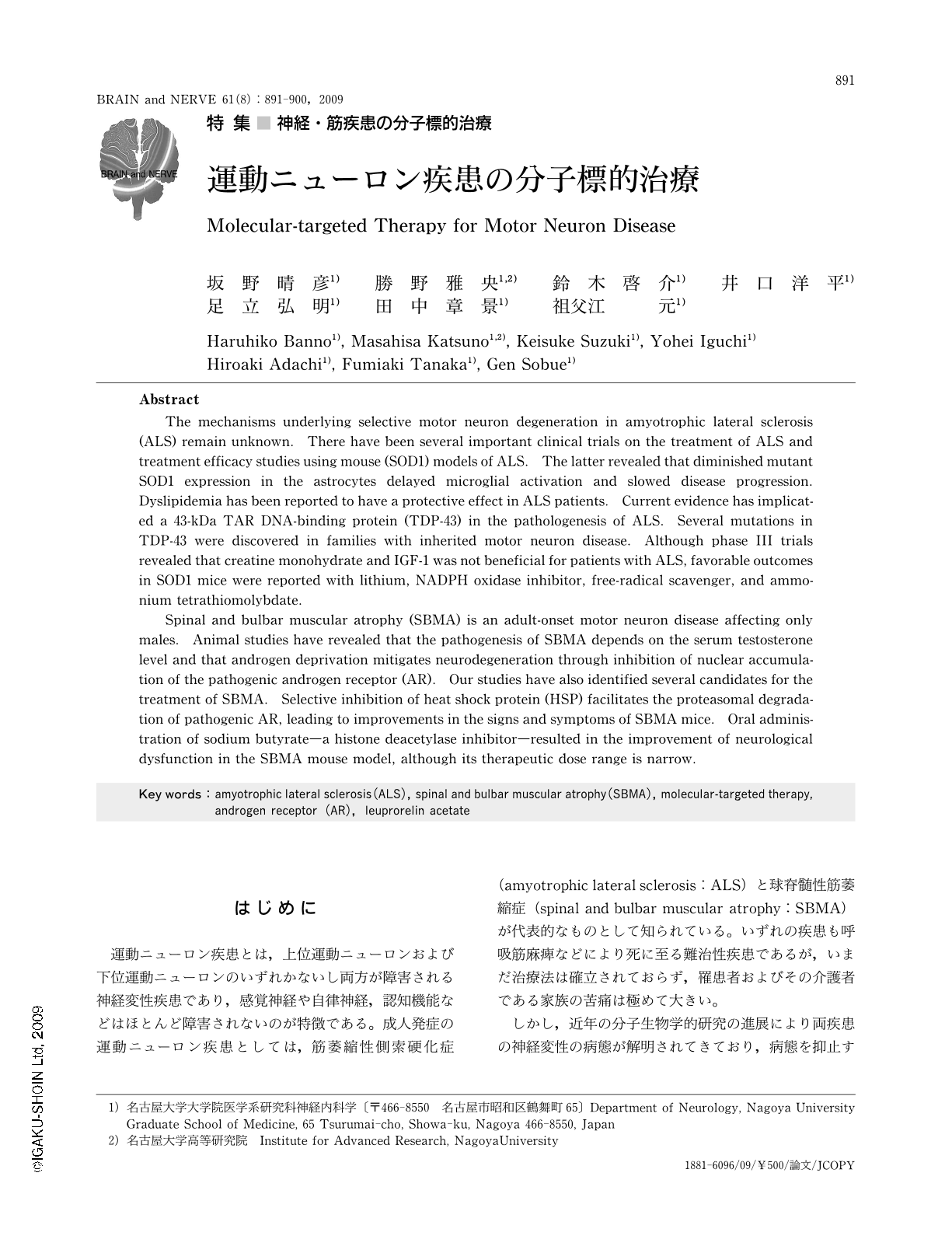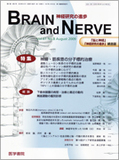Japanese
English
- 有料閲覧
- Abstract 文献概要
- 1ページ目 Look Inside
- 参考文献 Reference
はじめに
運動ニューロン疾患とは,上位運動ニューロンおよび下位運動ニューロンのいずれかないし両方が障害される神経変性疾患であり,感覚神経や自律神経,認知機能などはほとんど障害されないのが特徴である。成人発症の運動ニューロン疾患としては,筋萎縮性側索硬化症(amyotrophic lateral sclerosis:ALS)と球脊髄性筋萎縮症(spinal and bulbar muscular atrophy:SBMA)が代表的なものとして知られている。いずれの疾患も呼吸筋麻痺などにより死に至る難治性疾患であるが,いまだ治療法は確立されておらず,罹患者およびその介護者である家族の苦痛は極めて大きい。
しかし,近年の分子生物学的研究の進展により両疾患の神経変性の病態が解明されてきており,病態を抑止する分子標的治療法が開発されつつある。今後は病態機序のさらなる解明とともに,基礎研究で得られた成果をいかに臨床に還元するか,言い換えればいかに効率的なトランスレーショナルリサーチを進められるかが,研究の成否を分ける鍵となる。
本稿では,ALS,SBMA両疾患における近年の研究成果について述べるとともに,今後の研究の方向性について論じることとする。
Abstract
The mechanisms underlying selective motor neuron degeneration in amyotrophic lateral sclerosis (ALS) remain unknown. There have been several important clinical trials on the treatment of ALS and treatment efficacy studies using mouse (SOD1) models of ALS. The latter revealed that diminished mutant SOD1 expression in the astrocytes delayed microglial activation and slowed disease progression. Dyslipidemia has been reported to have a protective effect in ALS patients. Current evidence has implicated a 43-kDa TAR DNA-binding protein (TDP-43) in the pathologenesis of ALS. Several mutations in TDP-43 were discovered in families with inherited motor neuron disease. Although phase III trials revealed that creatine monohydrate and IGF-1 was not beneficial for patients with ALS, favorable outcomes in SOD1 mice were reported with lithium, NADPH oxidase inhibitor, free-radical scavenger, and ammonium tetrathiomolybdate.
Spinal and bulbar muscular atrophy (SBMA) is an adult-onset motor neuron disease affecting only males. Animal studies have revealed that the pathogenesis of SBMA depends on the serum testosterone level and that androgen deprivation mitigates neurodegeneration through inhibition of nuclear accumulation of the pathogenic androgen receptor (AR). Our studies have also identified several candidates for the treatment of SBMA. Selective inhibition of heat shock protein (HSP) facilitates the proteasomal degradation of pathogenic AR,leading to improvements in the signs and symptoms of SBMA mice. Oral administration of sodium butyrate―a histone deacetylase inhibitor―resulted in the improvement of neurological dysfunction in the SBMA mouse model,although its therapeutic dose range is narrow.

Copyright © 2009, Igaku-Shoin Ltd. All rights reserved.


